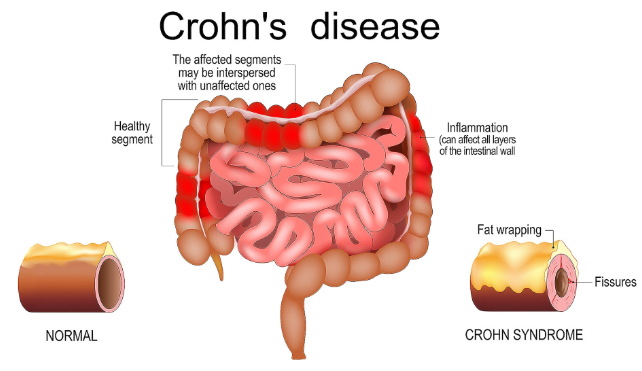Summary:
A new blood test has been developed for measuring the severity and risk of schizophrenia, fundamentally changing the approach to diagnosing and treating this complex psychiatric disorder. The test identifies specific biomarkers that can predict the condition’s progression and facilitate personalized treatment plans. This study is based on two decades of research into psychiatric biomarkers and offers hope for more objective assessments and effective interventions. By linking patients with the most suitable medications early on and providing essential social support, this innovation paves the way for advancements in precision psychiatry, potentially mitigating the disorder’s impact during critical periods of young adulthood.
Key Facts:
The blood test can objectively assess schizophrenia’s current severity and future risk, enhancing early diagnosis and treatment matching.
The study identified biomarkers predictive of hallucinations, delusions, and future hospitalizations, allowing for tailored therapeutic approaches.
This breakthrough is part of a larger body of work on psychiatric disorder biomarkers, with the test expected to be available later this year through MindX Sciences.
Source: Indiana University
A team of researchers led by Indiana University School of Medicine faculty have developed a breakthrough new blood test for schizophrenia, a psychiatric disorder that includes hallucinations and delusions.
Schizophrenia and related psychotic disorders affect over 3 million people in the United States. The new test identifies biomarkers in a person’s blood that can objectively measure their current severity and future risk for schizophrenia and match them to treatments that will be most effective for their individual biology.

The work builds on previous research over the last two decades by Niculescu and his colleagues on blood biomarkers for other psychiatric disorders (mood disorders, anxiety, post-traumatic stress disorder, suicidality risk, pain and memory disorders). Credit: Neuroscience News
“Schizophrenia is hard to diagnose, especially early on, and matching people to the right treatment from the beginning is very important,” said Alexander Niculescu, MD, PhD, Professor of Psychiatry and Medical Neuroscience at the IU School of Medicine, staff psychiatrist and investigator at the Richard L. Roudebush Veterans Administration Medical Center in Indianapolis and senior author on the study.
“Psychosis usually manifests in young adulthood — a prime period of life. Stress and drugs, including marijuana, are precipitating factors on a background of genetic vulnerability. If left unchecked, psychosis leads to accumulating biological damage, social damage and psychological damage.”
In a study published in the high impact Nature Publishing Group journal Molecular Psychiatry, researchers tested psychiatric patients that they followed for over a decade. They identified biomarkers that were predictive of high hallucinations and high delusions states, as well as future psychiatric hospitalizations related to hallucinations and delusions. They also studied which biomarkers are targets of existing drugs, which enables matching of patients to the right treatments.
The work builds on previous research over the last two decades by Niculescu and his colleagues on blood biomarkers for other psychiatric disorders (mood disorders, anxiety, post-traumatic stress disorder, suicidality risk, pain and memory disorders).
Niculescu said in general, the best biomarkers were more predictive than the standard scales used to evaluate someone with hallucinations or delusions, which means the use of this biomarker test can help reduce subjectivity and uncertainty from psychiatric assessments.
“Fortunately, biologically some of the existing medications work quite well if initiated early in the right patients,” Niculescu said.
“Social support is also paramount, and once that and medications are in place, psychological support and therapy can help as well. There is still plenty left to understand and apply about cognition and its abnormalities, but there is reason for optimism in this era of emerging precision psychiatry.”
Other study authors include M.D. Hill; Sumanpreet Singh Gill;Helen Le-Niculescu, PhD; O. MacKie; Rowan Bhagar; Kyle Roseberry, MD; Olivia Kay Murray; H.D. Dainton; S. K. Wolf; and Anantha Shekhar, MD, PhD of IU School of Medicine; and Sunil Kurian of the Scripps Research.
The test is anticipated to be available later this year from the IU spin-out company MindX Sciences. For more information about precision psychiatry and blood testing, visit the MindX Sciences website.
Funding:
This research was supported by the National Institutes of Health grant R01MH117431 and a VA Merit Award 2I01CX000139. The content is solely the responsibility of Indiana University School of Medicine and does not necessarily represent the official views of the National Institutes of Health or the VA.
About this schizophrenia research news
Author: Christina Griffiths
Source: Indiana University
Contact: Christina Griffiths – Indiana University
Image: The image is credited to Neuroscience News
Original Research: Closed access.
“Precision medicine for psychotic disorders: objective assessment, risk prediction, and pharmacogenomics” by Alexander Niculescu et al. Molecular Psychiatry
Abstract:
Psychosis occurs inside the brain, but may have external manifestations (peripheral molecular biomarkers, behaviors) that can be objectively and quantitatively measured. Blood biomarkers that track core psychotic manifestations such as hallucinations and delusions could provide a window into the biology of psychosis, as well as help with diagnosis and treatment. We endeavored to identify objective blood gene expression biomarkers for hallucinations and delusions, using a stepwise discovery, prioritization, validation, and testing in independent cohorts design. We were successful in identifying biomarkers that were predictive of high hallucinations and of high delusions states, and of future psychiatric hospitalizations related to them, more so when personalized by gender and diagnosis. Top biomarkers for hallucinations that survived discovery, prioritization, validation and testing include PPP3CB, DLG1, ENPP2, ZEB2, and RTN4. Top biomarkers for delusions include AUTS2, MACROD2, NR4A2, PDE4D, PDP1, and RORA. The top biological pathways uncovered by our work are glutamatergic synapse for hallucinations, as well as Rap1 signaling for delusions. Some of the biomarkers are targets of existing drugs, of potential utility in pharmacogenomics approaches (matching patients to medications, monitoring response to treatment). The top biomarkers gene expression signatures through bioinformatic analyses suggested a prioritization of existing medications such as clozapine and risperidone, as well as of lithium, fluoxetine, valproate, and the nutraceuticals omega-3 fatty acids and magnesium. Finally, we provide an example of how a personalized laboratory report for doctors would look. Overall, our work provides advances for the improved diagnosis and treatment for schizophrenia and other psychotic disorders.














